
The Norwegian University of Science and Technology is a public research university in Norway and the largest in terms of enrollment. The university's headquarters is located in Trondheim, with regional campuses in Gjøvik and Ålesund.
Climate engineering is a term used for both carbon dioxide removal and solar radiation management, also called solar geoengineering, when applied at a planetary scale. However, they have very different geophysical characteristics which is why the Intergovernmental Panel on Climate Change no longer uses this overarching term. Carbon dioxide removal approaches are part of climate change mitigation. Solar geoengineering involves reflecting some sunlight back to space. All forms of geoengineering are not a standalone solution to climate change, but need to be coupled with other forms of climate change mitigation. Another approach to geoengineering is to increase the Earth's thermal emittance through passive radiative cooling.
Kenneth Caldeira is an American atmospheric scientist. His areas of research include ocean acidification, climate effects of trees, intentional climate modification, interactions in the global carbon cycle/climate system, and sustainable energy.

Helge Brattebø is a Norwegian chartered engineer. He is a professor of industrial ecology at the Norwegian University of Science and Technology.

The contributions of women in climate change have received increasing attention in the early 21st century. Feedback from women and the issues faced by women have been described as "imperative" by the United Nations and "critical" by the Population Reference Bureau. A report by the World Health Organization concluded that incorporating gender-based analysis would "provide more effective climate change mitigation and adaptation."

Cirrus cloud thinning (CCT) is a proposed form of climate engineering. Cirrus clouds are high cold ice that, like other clouds, both reflect sunlight and absorb warming infrared radiation. However, they differ from other types of clouds in that, on average, infrared absorption outweighs sunlight reflection, resulting in a net warming effect on the climate. Therefore, thinning or removing these clouds would reduce their heat trapping capacity, resulting in a cooling effect on Earth's climate. This could be a potential tool to reduce anthropogenic global warming. Cirrus cloud thinning is an alternative category of climate engineering, in addition to solar radiation management and greenhouse gas removal.
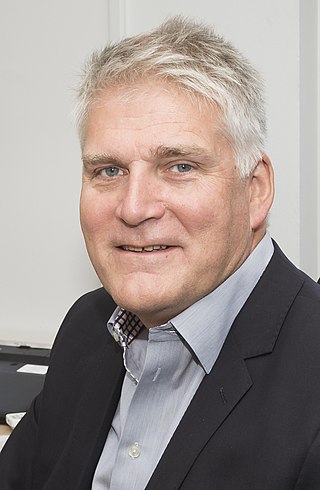
Nils Anders Røkke is a Norwegian scientist and business leader. He is the Executive Vice President Sustainability SINTEF. He is as of May 2017 the Chairman of The European Energy Research Alliance. EERA is the public research pillar of the EU Strategic Energy Technology Plan(SET-Plan). The SET-Plan aims at accelerating the development and market uptake of key low carbon technologies. EERA brings together more than 170 research centres and universities, working together on 17 joint research programmes, they build on national research initiatives.
The Industrial Ecology Programme, or IndEcol, in the Department of Energy and Process Engineering at NTNU is an interdisciplinary research programme specialising in sustainable development, circular economy research and environmental issues.
Lesley Ann Hughes is an Australian academic and climate scientist. Hughes is Distinguished Professor of Biology and Pro Vice-Chancellor at Macquarie University. She is also Director, Biodiversity Node, at the NSW Office of Environment & Heritage Climate Adaptation Research Hub and a Councillor at the independent Climate Council. From 2011 to 2013, she was a Commissioner of the Australian Government’s Climate Commission. Hughes was one of five Australian Lead Authors who worked on the Intergovernmental Panel on Climate Change (IPCC) Fourth & Fifth Assessment Reports in 2007. She works at the Centre for Smart Green Cities. Upon accepting her Leadership award in 2019, Hughes spoke on having hope and optimism in the face of climate change. Reasons included "Money, technology, the law, governments, people power, and kids'. Her full speech can be found at the Australian Museum blog website.

Anne Borg is a Norwegian professor of physics and rector at the Norwegian University of Science and Technology in Trondheim. She was prorector of education at NTNU from August 1, 2017 to August 20, 2019. She was appointed acting rector of NTNU on August 21, 2019, later being officially employed as rector on December 13 the same year.

Signe Helene Kjelstrup is a Norwegian professor of physical chemistry at the Norwegian University of Science and Technology (NTNU) in Trondheim, Norway. She is a principal investigator at PoreLab, a Center of Excellence at NTNU.
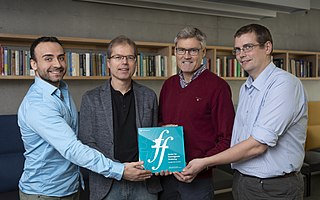
The Center for Quantum Spintronics (QuSpin) is a research center at the Department of Physics at the Norwegian University of Science and Technology (NTNU).
Inés Angela Camilloni is an Argentine climatologist, specializing in climate change in South America. She is a professor at the University of Buenos Aires and an independent researcher at the Center for Research on the Sea and Atmosphere. She is also the academic secretary of the Faculty of Exact and Natural Sciences of the UBA. Camilloni is a resident in the Solar Geoengineering Research Program of Harvard University and director of the Master's in Environmental Sciences at the Faculty of Exact and Natural Sciences of the UBA.
Arne Halaas is a Norwegian profiled Professor emeritus in computer technology and telematics at the Norwegian University of Science and Technology (NTNU). Halaas was central in the development of the technology that led to Fast Search & Transfer ASA (FAST), which was later acquired by Microsoft for NOK 6.6 billion on April 24, 2008.
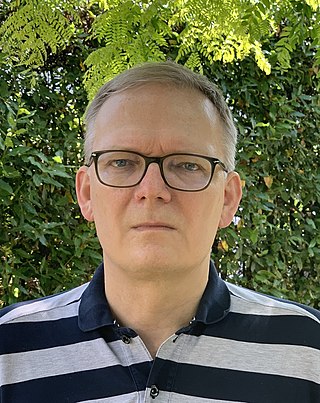
Henrik Koch is a Danish scientist. His field is theoretical chemistry. He is Full Professor at Scuola Normale Superiore di Pisa in Italy.
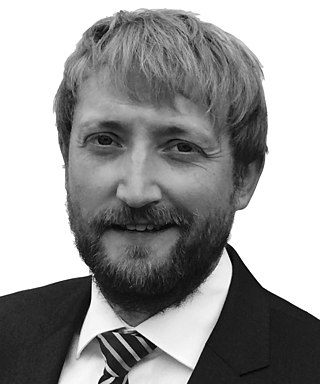
Anders Hammer Strømman is a professor of industrial ecology in the Industrial Ecology Programme at the Norwegian University of Science and Technology (NTNU). He has collaborated with Francesco Cherubini in developing a method to analyse the climate impact of CO2 emissions from biomass combustion, and his fields of expertise include life cycle studies of producing electric car batteries.

Fredrik Jutfelt is a Swedish scientist. His field of study is animal physiology, and his current research focus is on the effects of warming and ocean acidification on the physiology and behaviour of fish. He is a professor at the Department of Biology at the Norwegian University of Science and Technology (NTNU) in Trondheim, Norway, where he is the leader of the animal physiology section. His research group is called the Jutfelt Fish Ecophysiology Lab, and they investigate how fish respond physiologically and behaviourally to changes in the environment. Much of the research is based on laboratory studies of zebrafish, and he has built a zebrafish research facility at NTNU. The research group also studies the impacts of climate change on marine animals.
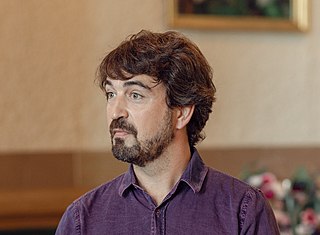
Manuel Linares Alegret is a Spanish researcher. He is an astronomer and astrophysicist, with a specialty in high-energy astrophysics. His primary focus is on compact objects in binary systems, neutron stars and accretion streams. In 2018, he and his research group discovered the most massive neutron star that had been measured until then. It has 2.3 times the mass of the sun.

Patricia Lago is an Italian computer scientist. She is a full professor at the Vrije Universiteit Amsterdam in the Netherlands, where she leads the Software and Sustainability Research Group S2, which she established and has led since 2011. Her research interests are software engineering, software architecture and software sustainability.
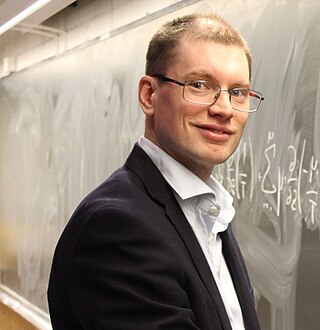
Øivind Wilhelmsen is a Norwegian professor of physical chemistry at the Norwegian University of Science and Technology in Trondheim (NTNU), Norway. There he is head of the Thermodynamics group and serves as principal investigator at PoreLab, a Center of excellence. His area of research is thermodynamics, with emphasis on non-equilibrium thermodynamics.














